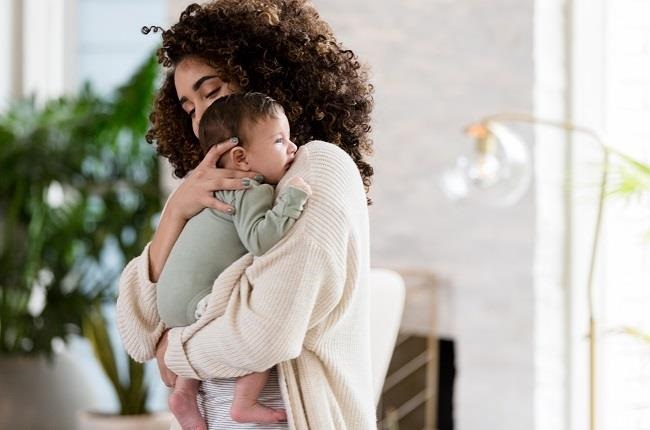
Educational child psychologist Sheryl Cohen answers a new mom's query about her anxiety when separating from her baby.
Reader asks:
My beautiful daughter is 8-and-a-half months old, and I love her with all of my heart. My problem is 'letting her go a bit'. I am a stay-at-home mom because I physically cannot let anyone look after her except me or my mom, who is too old to watch her for longer than about 2 hours. When I return from leaving my daughter alone she is crying and upset until she sees me. My mom is excellent with babies and she says my daughter is now old enough to be left for a while, but I don’t even want to leave her with my mom! She sleeps in her cot next to my bed still and she sleeps through most nights, occasionally waking for a dummy or a sip of water. I don’t want her to go to her own room, I want to be able to see her and hear her all the time. This has led to a sleeping problem where I lie awake or just cannot sleep because I don’t want her to have to cry to get a response from me in case I don’t wake up. How am I going to send her to a playgroup or go out with my husband and leave her with my mom or sisters? How do other moms let go a bit so that their baby or child does not feel insecure? - Samantha P
Also read: What is it about parenting in the 21st century that has us breaking down?
Sheryl answers:
Letting go isn’t easy for you and for your baby. But this is the process of life; and growing up. The older she gets the more she will need to develop her own separate sense of self. Our role as parents is to facilitate this process in a supportive, encouraging, and age-appropriate way.
This doesn’t mean that you must leave her tomorrow in day-care for 12 hours so that she can "stand on her own two feet". It means that your job as a parent is to help her to manage small amounts of separation so that she can experience small amounts of anxiety and see that she survives, you survive and tomorrow is another day.
The cognitive error you might be making is: "Because I can be with my daughter 24/7 I should"; or "The best thing for my baby is to make sure she is always happy”; or "Good mothers don’t let their babies cry”. While this is appropriate for a newborn (up to around 4 months) it expires as your child grows up.
I have called this the "happiness trap". We all want our babies and children to be happy. But it’s an unrealistic expectation at times. Why? Because parents can’t avoid children’s difficult feelings (such as anger, sadness, frustration, upset, etc). In fact, I believe that difficult feelings are good for kids – as long as its not all the time and not for long periods of time.
So when your baby cries, she is learning about what makes her happy; what makes her sad; what she likes; what she doesn’t’ like; what she is in control of; what she is not; etc.
Perhaps you feel responsible for the “aliveness” of your daughter. Try to trust that she can take charge of being alive herself. If she needs you, she will cry and you will come. This is a valuable learning curve for her (which she learns through your action), because then she gets in touch with her needs and then she expresses them and then she sees that mommy attends to them.
From this she learns that she can always depend on mom. But if you rob her from this experience because you are there before she even knows she needs you, you have robbed her of the opportunity to get to know herself.
Here are some practical tips:
- I think it is very important that you leave her with someone you trust. If you are anxious about her caregiver while you are away for an hour or two, you will not be able to communicate to your baby that this can be a good experience.
- Make it short and always say goodbye. Despite her difficult feelings, say goodbye. But don’t hang around.
- Leave your baby with her transitional object (this is children’s Prozac!) such as her dummy, bottle, blanket, etc. This helps her to self-soothe and will be very comforting for her.
- Move your baby out your room. Trust that she will call you when she needs. If this is too drastic, put her by the door of your room.
- Ask your spouse to help you to be less controlling. He might have some good ideas to share.
- Be careful that your baby doesn’t become the "new hubby" at home. Children need a strong relationship between mom and dad. Separating from your baby to nurture your marriage is not only good for you but good for your baby too.
Chatback:
Share your stories and questions with us via email at chatback@parent24.com. Anonymous contributions are welcome.
Don't miss a story!
For a weekly wrap of our latest parenting news and advice sign up to our free Parent24 newsletter.




 Publications
Publications
 Partners
Partners










